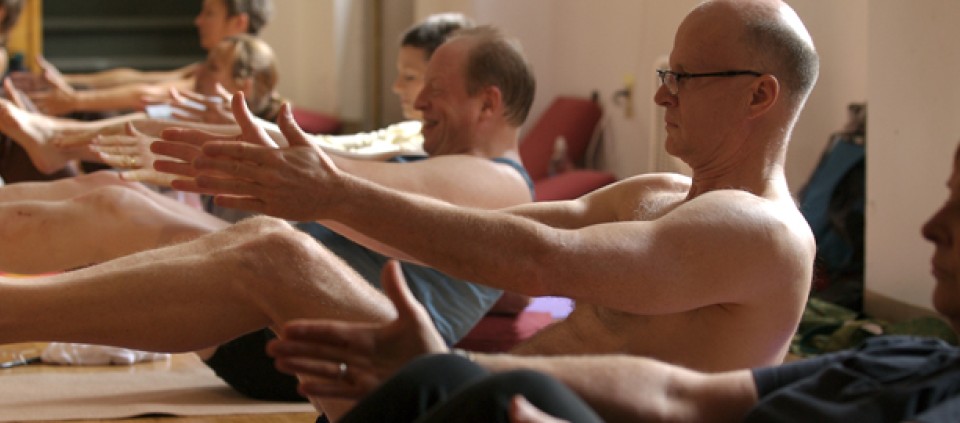Self-Discipline Isn't Unlimited

Ever wonder why it’s easy to call forth self-discipline one moment, but difficult in another? Several years ago, researcher Dr. Roy Baumeister, a professor of psychology at the University of Florida, pondered the same question. To understand why self-discipline can be elusive, Dr. Baumeister and his team ran an experiment: they wanted to know whether or not self-discipline was like a muscle—something that could be weakened with overuse. To test this question, they brought a group of hungry subjects into their lab and had each subject enter into a room with a bowl of cookies and a bowl of radishes on a table. They told half of the group not to eat the cookies, but instead to eat the radishes. The other group could eat whatever they wanted. (They all ate the cookies.) Then, immediately following this experience, the subjects were brought into another room, where they were asked to complete a complex math problem. The math problem was unsolvable—the researchers were actually measuring how long the subjects persevered in trying to complete it.
The result? Across the board, those who had eaten what they wanted to were able to focus their attention on the math problem longer than those who were forced to eat only the radishes. The researchers hypothesized that a primary reason for this was that they had not depleted their energy resisting the cookies, so they had more energy to focus on the math problem.
Effortful Self-Discipline: A Limited Resource
It was from studies such as this one that researchers began to understand self-discipline, or what they call self-control, as a limited resource. When researchers speak about self-discipline from this view, they are talking about an act that requires our full attention and that engages what’s known as our executive functioning. Executive functioning includes behaviors, such as emotional regulation, problem solving, planning, decision making, resisting temptation, and persisting in adverse conditions. Researchers argue that when we engage in any of these kinds of activities, we deplete ourselves of this essential energy and ability. Once we become depleted, subsequent acts of effortful self-discipline are much more likely to fail.
Intrigued by the results, Dr. Baumeister and his team began to run other studies. Researchers asked half the participants to inhibit their emotional response to an upsetting video while the other half could express their emotions freely. Afterward, both groups were tested on handgrip endurance by tightly holding a ball for as long as they could. As in the previous study, those who had not been asked to inhibit their emotions were able to sustain the second task longer.
It’s impossible to avoid depletion. Each day most of us are asked to engage in a variety of different tasks that would fall under the cateagory of executive functions. In any given day, we might manage frustration with traffic on the way to work, focus on an intense project, decide what to fix for dinner, and try to resist eating a big bowl of ice cream before bed. Depletion is just a part of life. So, if depletion is certain to occur, what can we do?
Replenishing the System
Considerably less research has been done on ways to systematically replenish one’s energy reserves. However, several methods have been found effective.
Food: Glucose levels are a good predictor of whether or not one will be able to sustain a task. In order to sustain any task, we need the biochemical energy to complete it, and glucose is a well-known form of energy for the brain and the body.
Sleep: There is nothing like a good night’s rest to refill the well. Science shows that self-discipline gets progressively worse the longer one goes without sleep. Rest provides a boost in one’s ability to stick to one’s intentions.
Meditation: Although meditation is still a topic under scientific inquiry, a preliminary study showed that guided meditation helped to buffer against depletion. Further investigation is needed to understand how practices such as yoga and meditation can help shield a person from depletion and boost one’s energy reserves.
Those of us who practice yoga know that yoga refills the internal well. In fact, many of the yogic practices are intended to increase one’s energy reserves. Breathing techniques, postures, meditation, and even ethical practices, such as non-harming or non-stealing, were traditionally meant to help increase consciousness and increase vital life-force energy.
Sound a little esoteric? Give it a try. For one night turn off the TV, the cell phone, and the computer. Practice some restorative yoga, remain in silence (a yogic practice to increase energy), and finish the night with some gentle breathing exercises. Go to bed early and wake up with the sun the next morning. Notice if you feel more relaxed and energized, and see if it’s easier to activate self-discipline and to stay aligned with your intentions.
© Kripalu Center for Yoga & Health. All rights reserved. To request permission to reprint, please email editor@kripalu.org.
Angela Wilson, LMHC, RYT 500, is a Kripalu faculty member who has conducted research and written about the intersection between yoga, Western psychology, and science.
Full Bio and Programs